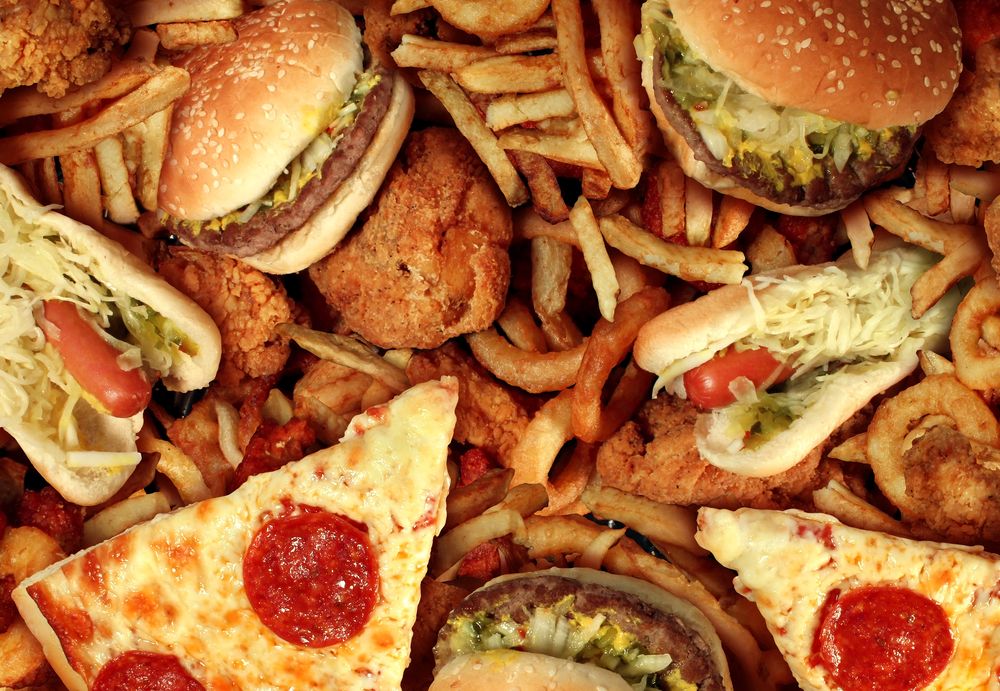When aiming to shed some weight from your abdominal area, several factors come into play. These factors encompass your level of physical activity, stress levels, alcohol consumption, and overall dietary choices. It's important to note that there's no quick fix for safely losing belly fat. Instead, achieving this goal requires a gradual and comprehensive approach that addresses various aspects of your lifestyle.
Regarding your diet specifically, avoiding or limiting certain types of foods that can contribute to belly fat is a helpful strategy to achieve healthy and sustainable weight loss. Foods that are less than ideal for reducing belly fat include those high in added sugars and trans fats, such as fast food, packaged baked goods, and candy, among others.
Noah Quezada, RDN, highlights a study published in the journal Obesity Reviews, which revealed that individuals who consume excessive calories and hyper-palatable foods (processed foods with intense flavors) are more likely to accumulate excess abdominal fat. In fact, the study suggests that these foods may be a significant factor contributing to abdominal obesity more than any other factor.
1) Processed Meats
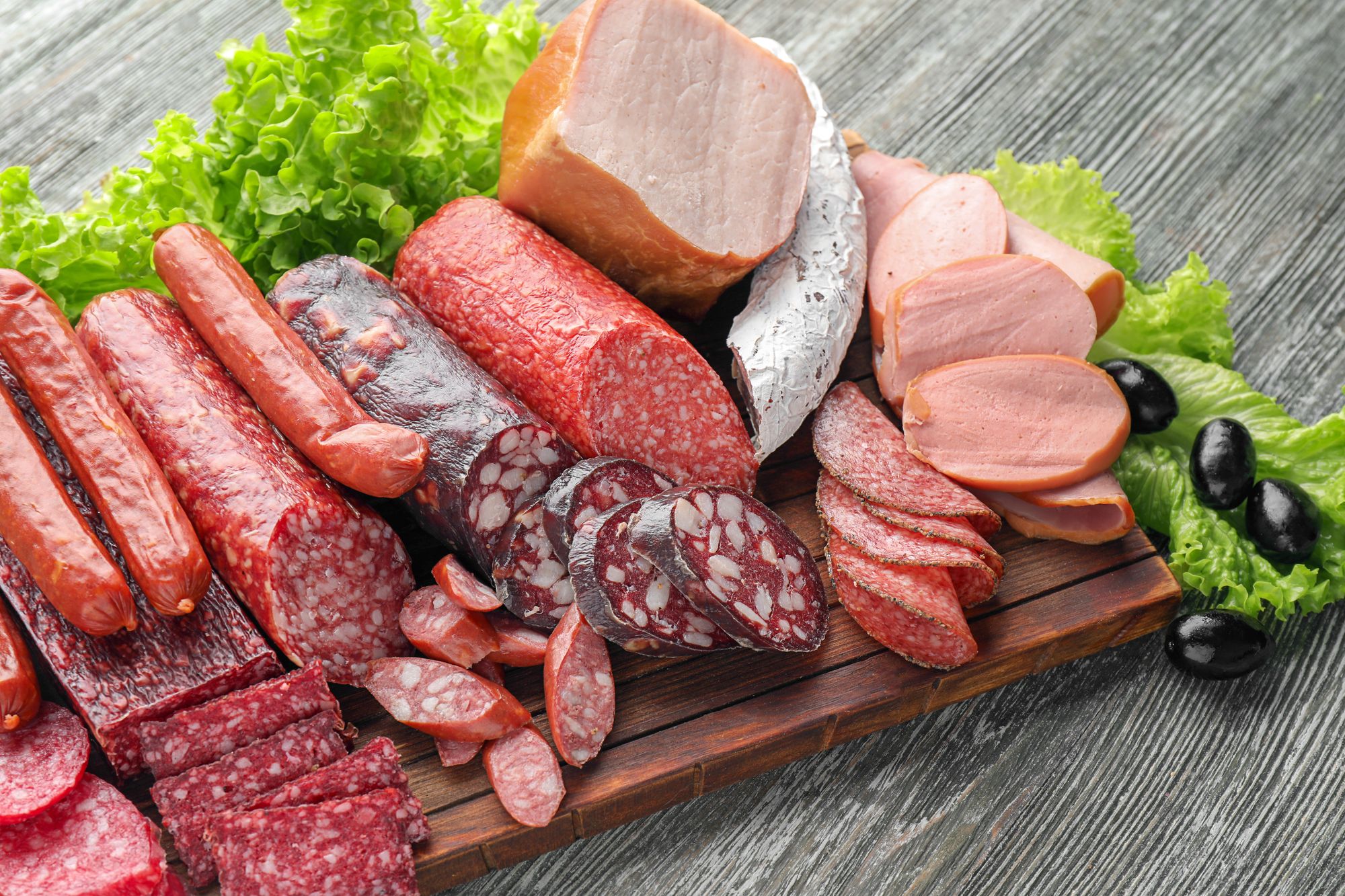
Recent research has consistently indicated that processed meats like pepperoni, sausage, deli meats, and bacon have significant adverse effects on your health.
These processed meats not only elevate the risk of colorectal cancer but also contribute to increased abdominal girth. Scientific studies have demonstrated that a diet characterized by reduced consumption of processed meats and other processed food items, coupled with a higher intake of fruits and dairy, plays a pivotal role in preventing the accumulation of abdominal fat.
In simpler terms, while enjoying a pepperoni pizza on the occasional Friday night is acceptable, if your goal is to shed belly fat, it's prudent to reconsider making it a frequent choice.
2) White Bread
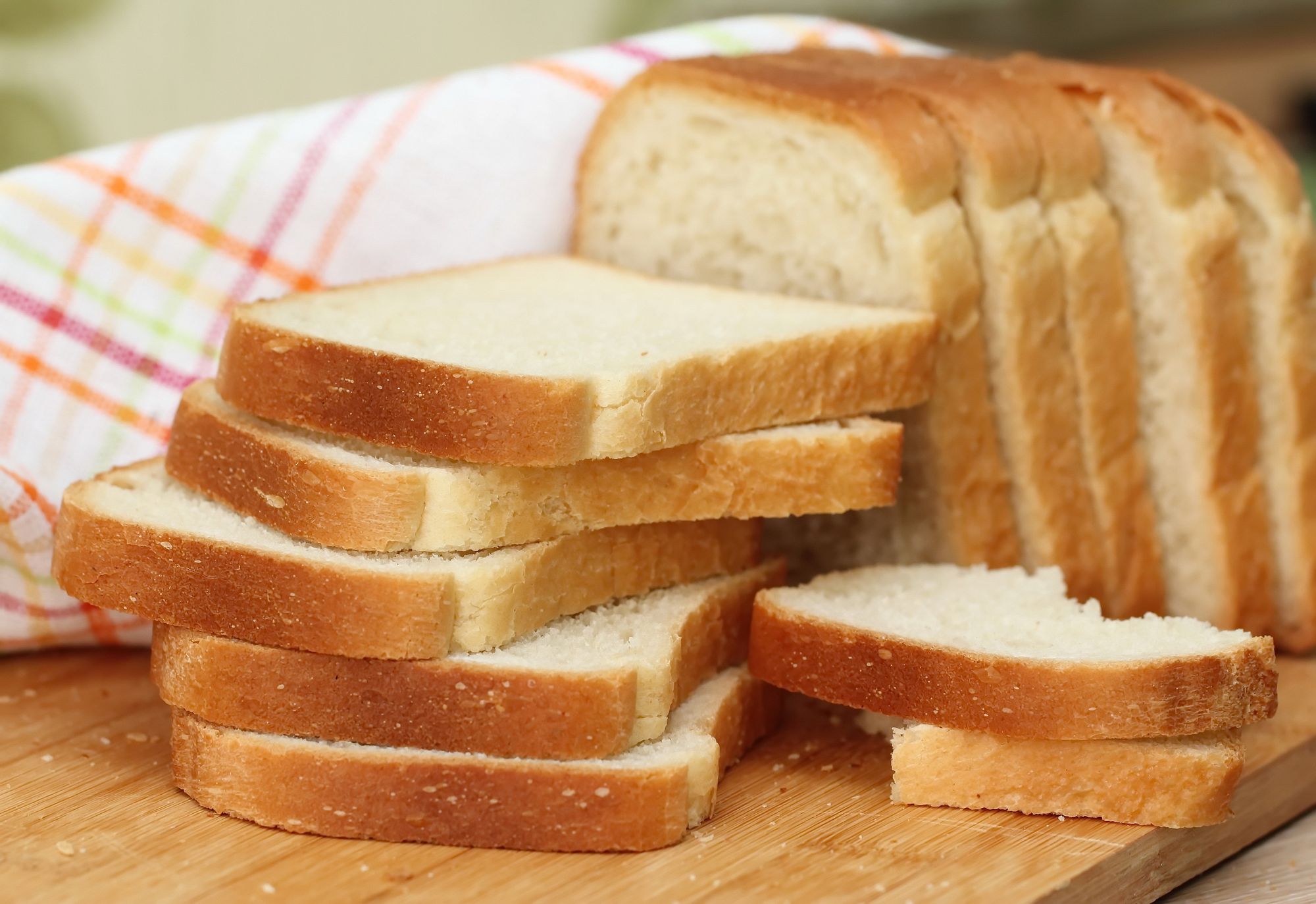
White and refined breads lack the fiber and nutritional content present in whole-grain alternatives, and the disadvantages of refined grains extend further. A comprehensive study involving over 2,800 adults revealed that increased consumption of refined grains, such as those found in white bread, was linked to greater visceral (abdominal) fat.
Whenever feasible, choose whole wheat bread over white bread. The increased fiber and grain content in whole wheat bread can help you feel satisfied for a more extended period, potentially supporting your weight loss objectives.
3) Candy
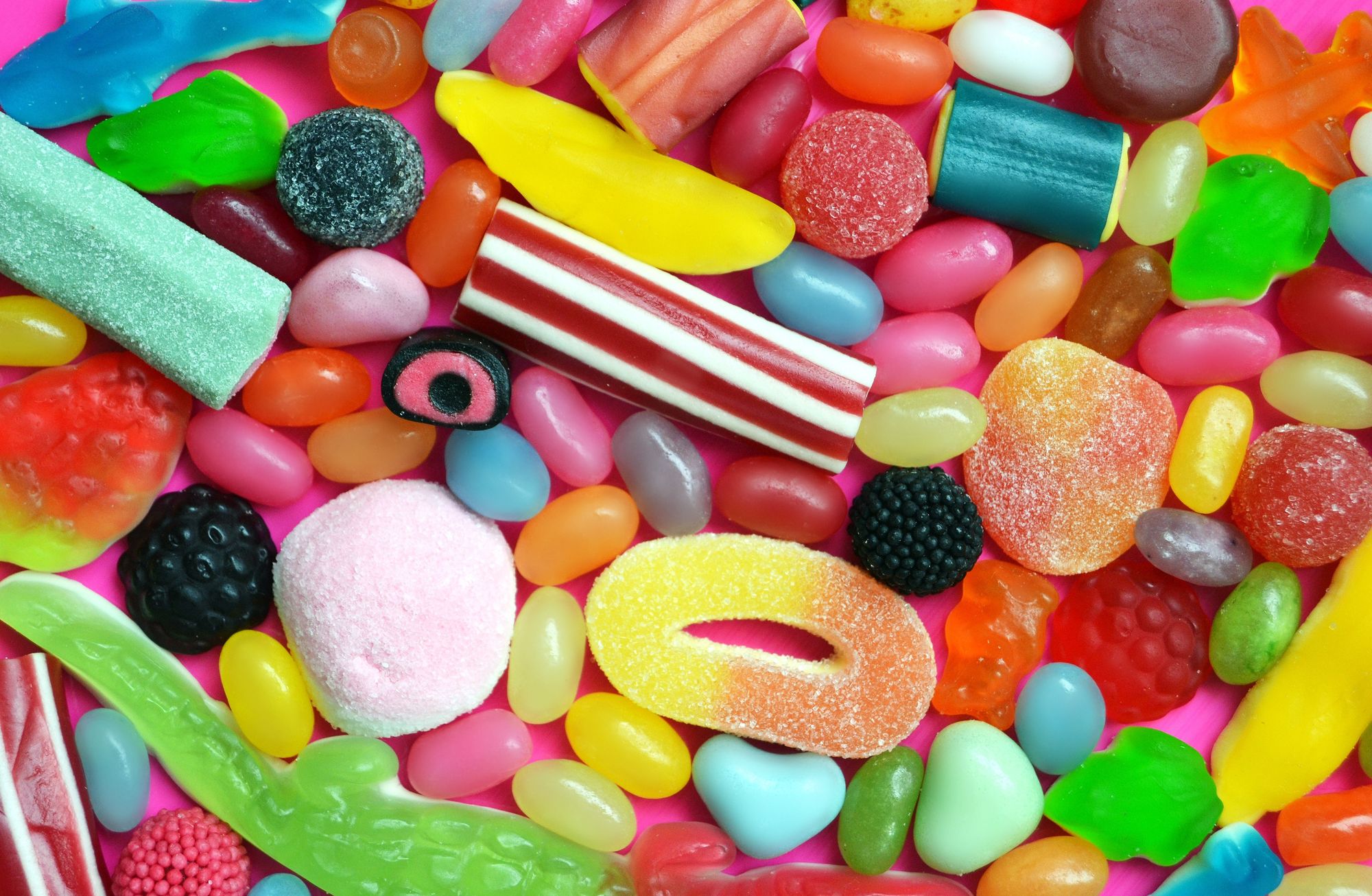
Here's a familiar one: To reduce belly fat, it's crucial to resist the temptation of the candy bowl. Sugary sweets like fruity or chocolate candies are loaded with simple carbs that don't provide a sense of fullness, making it easy to overindulge.
Manaker points out, "These foods can contribute to the accumulation of belly fat if consumed excessively and not utilized as energy. Carbohydrates primarily serve as an energy source, but if they go unused, they may be stored as fat, potentially in the abdominal area."
What makes excess candy particularly detrimental for abdominal fat is its high added sugar content and low levels of fiber or protein. This results in the consumption of empty calories that don't satisfy your appetite, and research indicates a link between excessive added sugar intake and the accumulation of abdominal fat.
4) Certain Bottled Salad Dressings

If you find yourself consuming salads regularly but still experiencing weight gain, the likely culprit could be your choice of salad dressing.
Trista Best, MPH, RD, LD, from Balance One Supplements, advises, "Not all salad dressings are healthy, and many of them can covertly increase the calorie and fat content of your salad. This can result in abdominal weight gain and hinder your weight loss efforts."
Harvard Health suggests that replacing saturated fats and trans fats with more polyunsaturated fats, as part of a well-balanced diet, can assist in reducing abdominal fat. Numerous bottled salad dressings contain high levels of trans and saturated fats, making it beneficial to substitute them with dressings based on polyunsaturated fats like olive oil. Best recommends opting for vinegar, balsamic options, or a squeeze of lemon to add flavor when selecting a salad dressing.
5) Bars Designed as Meal Replacements

They are often marketed as "healthy," but meal-replacement bars are typically heavily processed, laden with added sugars, and may leave you feeling even hungrier than before.
Trista Best, MPH, RD, LD, from Balance One Supplements, points out, "While these bars can be a valuable addition to a weight loss regimen, overlooking the quality of nutrients can actually promote abdominal weight gain. Processed meal replacement bars often contain high levels of calories, fats, sodium, added sugars, and refined carbohydrates. Any one of these factors can contribute to abdominal weight gain, but most meal replacement bars tend to encompass several of these weight-promoting characteristics."
Another issue with using these bars as meal substitutes is the potential deficiency of dietary fiber. Every meal presents an opportunity to incorporate fiber, a nutrient that can assist in reducing abdominal fat. Many meal replacement bars lack sufficient fiber content, meaning you miss out on this valuable component of a balanced diet.
6) Ice cream

Although we might prefer not to acknowledge it, regular consumption of ice cream can potentially result in undesired weight gain, particularly around the abdominal region.
According to Quezada, "Ice cream is another item that can contribute to the accumulation of belly fat due to its high sugar and saturated fat content, and it's easy to consume in excess."
Research consistently demonstrates a connection between increased added sugar intake and the accumulation of abdominal fat, which could implicate ice cream as a potential contributor. Fortunately, there are numerous lower-sugar ice cream alternatives available in stores.
Please note that this article has been updated to incorporate additional content, research, and proofreading revisions since its original publication date.
7) Sugary Breakfast Cereal
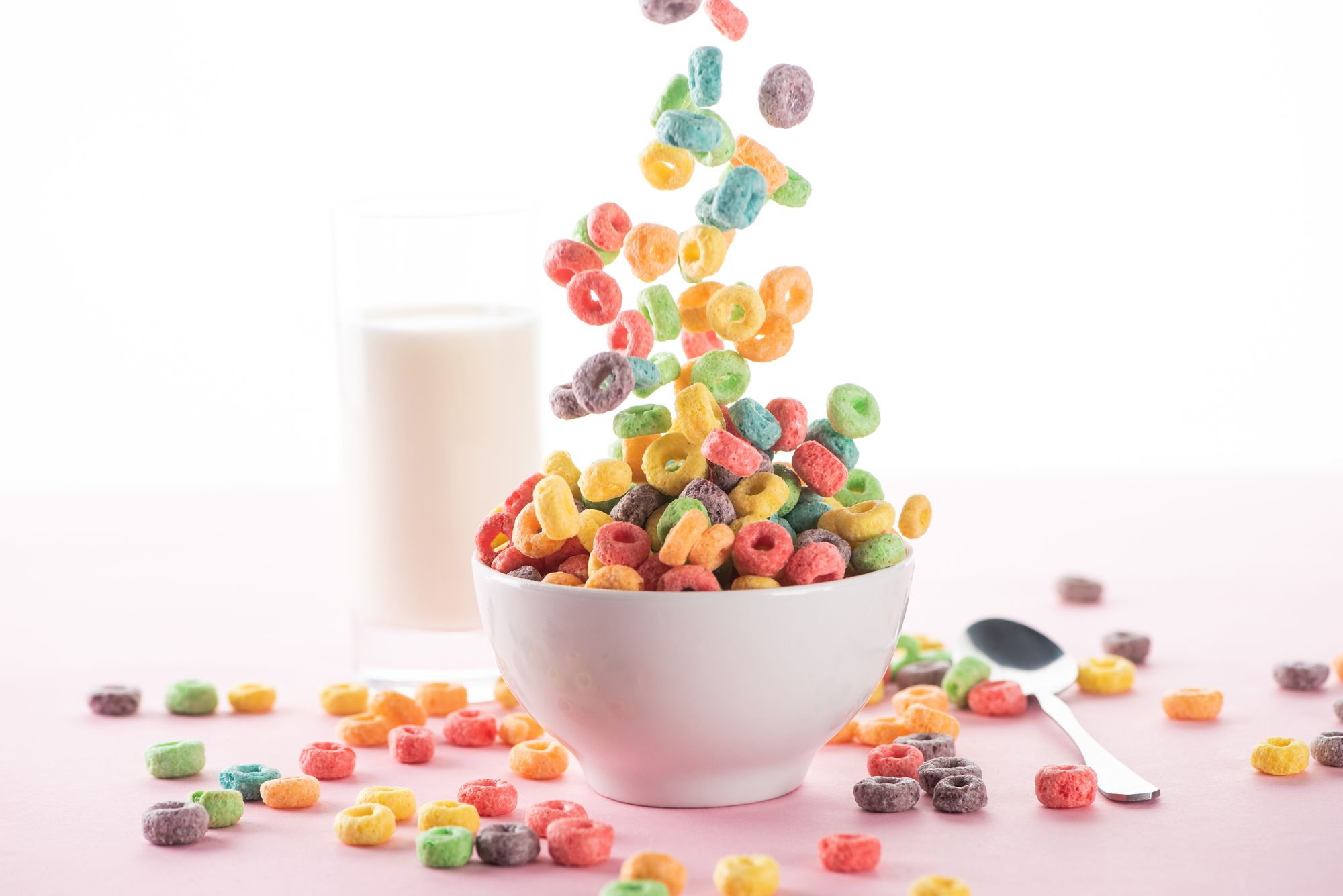
Commencing your day with a bowl of sugary breakfast cereal may be a delightful choice, but it can potentially contribute to the accumulation of abdominal fat.
Breakfast cereals rich in added sugars have the potential to promote belly fat, as there exists a correlation between excessive added sugar consumption and an elevated risk of abdominal fat gain.
Furthermore, these cereals typically lack adequate protein and fiber, resulting in a deficiency of nutrients that can keep you feeling satiated. Consequently, you may find yourself consuming more calories in the morning or engaging in increased snacking.
8) Microwave Popcorn
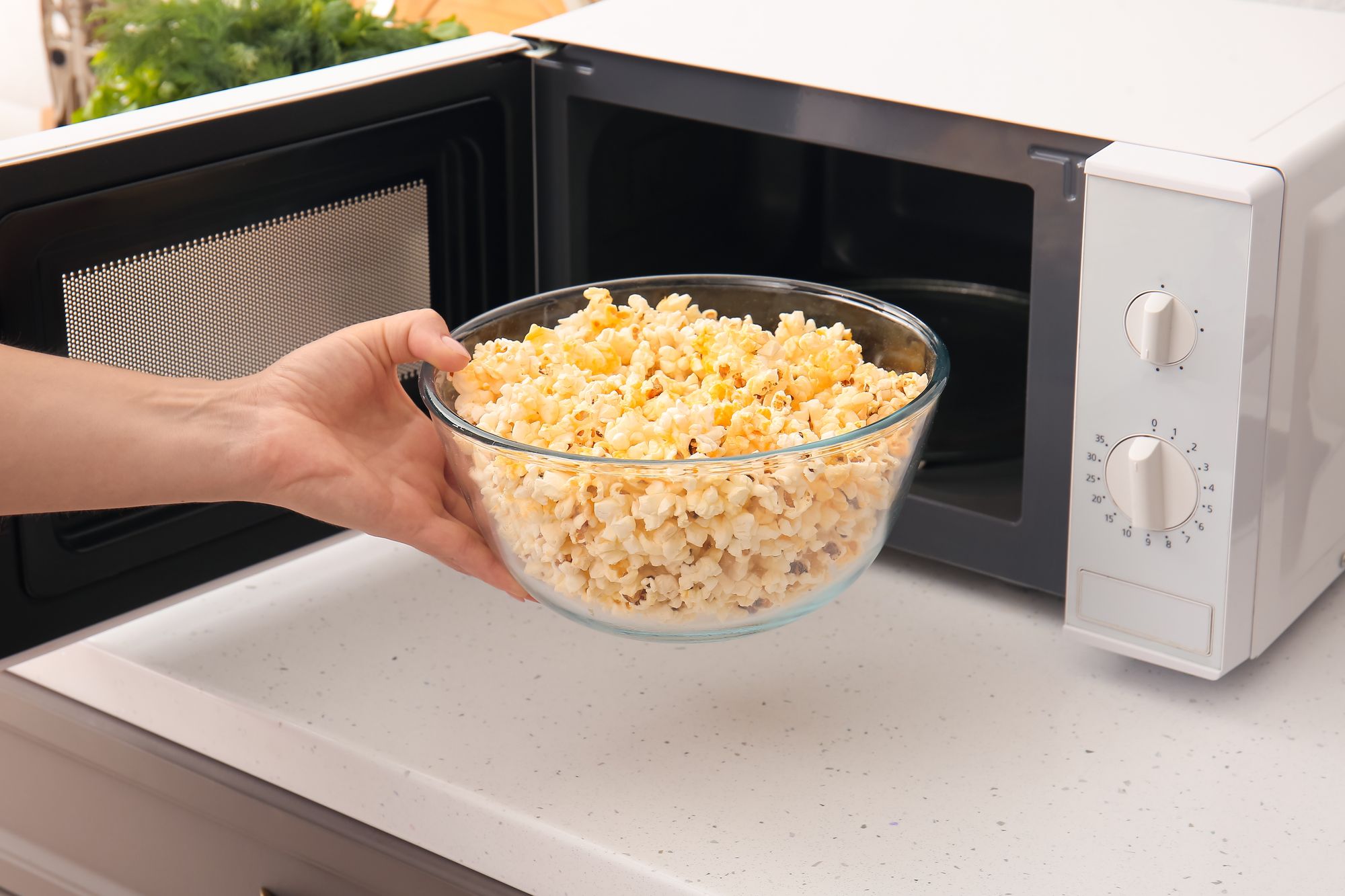
Let's discuss trans-fat. This unhealthy dietary component has been linked to a range of concerning health issues, including an increased risk of heart disease, stroke, and yes, the accumulation of abdominal fat.
In 2018, the Food and Drug Administration (FDA) established that partially hydrogenated oils—a significant source of trans fat in the American diet—could no longer be added to processed foods. However, we find ourselves in a transitional period until 2021, during which some products may still contain these oils. One common example? Microwave popcorn.
Thankfully, there's a straightforward method for identifying trans fats in your favorite movie night snack.
"Determining the quantity of 'trans fats' is a requirement on the nutrition label of packaged items, which provides an easy way for us to assess their content," explains registered dietitian Lauren Manaker, MS, RDN. "In my opinion, one of the most critical ingredients to watch out for is hydrogenated oils, as these are a source of trans fats." A brief review of the popcorn's ingredient list should reveal whether any hydrogenated components are present.
9) Packaged Pastries

Packaged pastries like Danishes, muffins, and donuts, while delicious and convenient, often contain substantial amounts of trans fats and added sugars.
A study revealed that consuming bread rolls high in trans fats led to an increase in body fat and waist circumference in postmenopausal women who were already overweight. To steer clear of trans fats, consider preparing homemade pastries whenever possible and freeze some for quick defrosting on busier mornings.
10) Fried Fast Foods
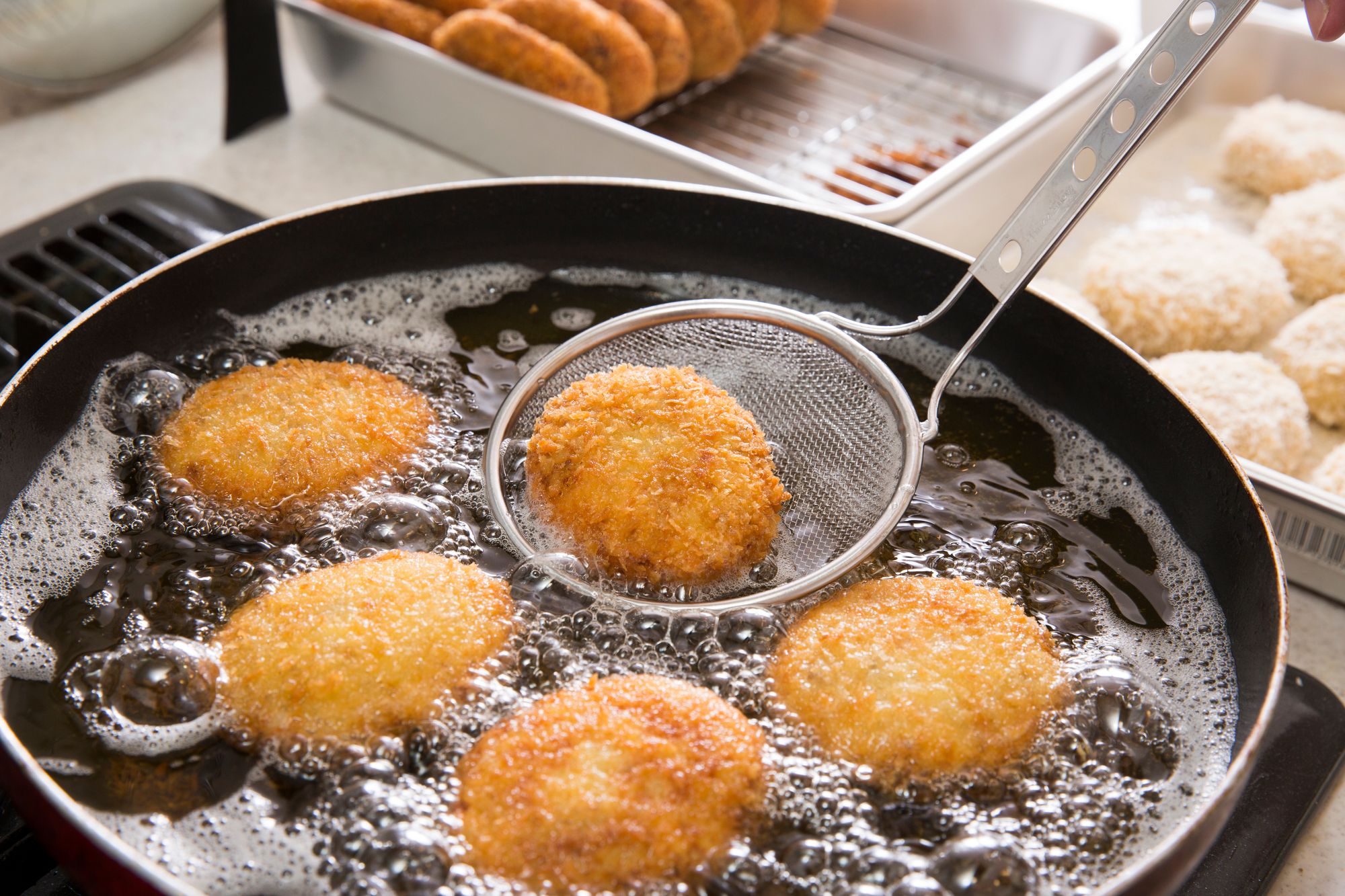
The list of culprits in the trans-fat category extends to fried offerings at fast-food establishments, which can contribute to an escalation in abdominal fat when consumed regularly.
Studies indicate that corn oils contain higher levels of trans fats compared to other vegetable oils, and as of 2010, the majority of fast-food chains utilized corn oil for frying their French fries.
Fast food falls into the category of "ultra-processed foods," a category of items linked to an increase in visceral fat—the type of fat situated around your abdominal organs. Moreover, a study published in the Journal of Preventive Medicine and Hygiene concluded that frequent consumption of fast food can heighten the risk of abdominal obesity.

